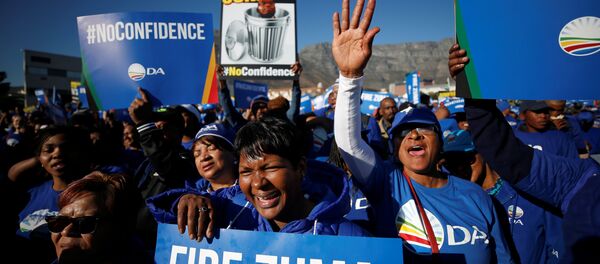Take Nigeria, for example. It has 53 registered political parties but in reality, three major parties dominate the political landscape: the People's Democratic Party, the All Progressives Congress and the Alliance for Democracy.
In recent years, some Western countries have constantly pressured African countries as a condition for development funds and "good governance" guidance. But since these countries' political systems are not endogenous, they have undergone warped development, with frequent military coups and bloody conflicts during "Western democratic" elections.
Therefore, strengthening exchanges among political parties in China and Africa can promote the endogenous development of institutions in African countries and also improve global governance.
The development of multiparty politics in Africa has some general features. Most political parties pay great attention to strengthening the construction of the party and improving decision-making within the party. These parties attach great importance to soliciting and digesting the opinions of grassroots organizations, party members and individuals outside the party.
Nonetheless, the current political reality in the African continent is one full of conflicts and divisions, under the guise of Western political discourse.
This is because tribalism is the main factor retarding political development.
Again, take Nigeria as an example. With about more than 300 tribes, it has a high degree of cultural, linguistic, religious and ethnic diversity. During the independence movement half a century ago, some nationalists strongly opposed the establishment of a "man-made country." Overcoming local nationalism is the core theme of Nigeria's political development.
The modernization of Africa's political governance requires seeking endogenous economic and political development, establishing national recognition and consensus, overcoming local nationalism and realizing the integration of national politics and nation. Strengthening exchanges among political parties in China and Africa will promote political progress in African countries.
China's development dividend is expected to boost political progress in Africa. The world economy cannot develop without China, while China needs the world to continue its development. China won't have a problem meeting its growth target of about 6.5 percent for this year. The nation remains one of the fastest-growing countries in the world as well as the major driving force of global economic growth.
The traditional view is that Africa's economy relies heavily on resources like oil and minerals, with outdated manufacturing, agriculture and services sectors. But with the development of Sino-African economic and trade cooperation, Chinese capital has moved into these lagging sectors, and China's development dividend is making Africa's economy more diversified. For instance, a report by McKinsey predicts that Nigeria's trade, infrastructure, manufacturing and agriculture will bring $500 billion in economic growth by 2030, which is almost equivalent to the current value of the nation's economy.
For big countries, increased economic strength must be accompanied by an external expansion of economic and commercial interests, changes in the country's view of itself and reorientation of its global strategies. The rising African continent must reconsider its political structures to build systems that suit its economic and cultural developments.
China's inclusive development concept is expected to influence the public governance level in Africa. Due to strong dissatisfaction with the political turmoil brought by the third wave of democratization, many non-governmental organizations have flourished in Africa. But in practice, these organizations have had no participation in the political world. Some are all talk and no action, while some become representatives of discredited Western theory.
China has experience in expanding the public's political participation and guaranteeing people's political rights, and this experience has gained the recognition of African elites. Strengthening exchanges among political parties in China and Africa will improve grassroots political participation in Africa and enhance the level of public governance in African countries.
This article, written by Song Wei, was originally published in the Global Times.




